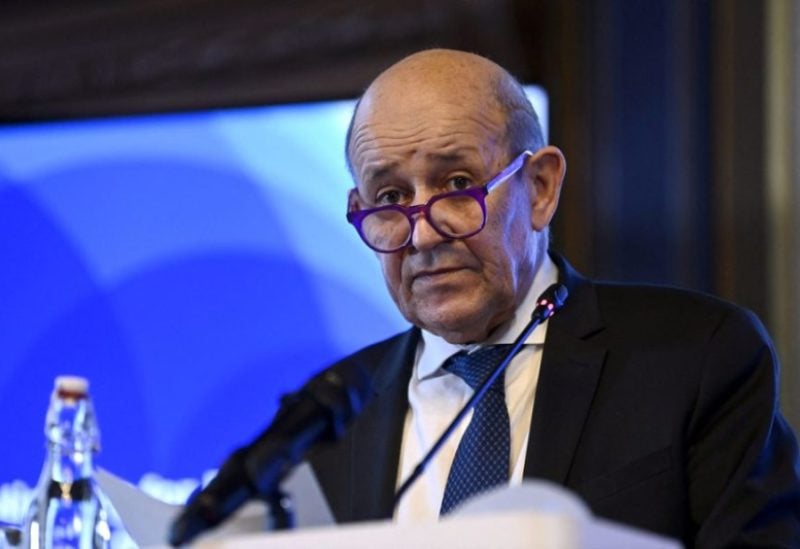
French Foreign Minister Jean-Yves Le Drian. REUTERS
The proposal of the French Presidential Envoy, Jean-Yves Le Drian, regarding the invitation he will extend to “all relevant parties involved in the presidential election process” to meet in September, aims to crystallize a consensus on the challenges that the President should address. This will serve as a focal point for communications among the parties, in preparation for Le Drian’s anticipated visit in September.
The French Ambassador, Anne Grillo, has completed her mission, and the new ambassador, Hervé Magro, will arrive in Beirut at the beginning of September. In the absence of a President, he will present his credentials and act as Chargé d’Affaires until his formal accreditation. However, Western diplomatic sources clarified to “Sawt Beirut International” that Le Drian focused on gauging the opinions of the concerned parties in the parliamentary council and their reactions to the Quintet Group’s statement. This is expected to lead to more flexibility, particularly after the parliamentary session for the election on June 14 and the information indicated therein.
Le Drian’s actions were not focused on representing the Quintet Group, but rather on a French mission. According to the sources, his efforts deviated from the traditional Franjieh-Salameh equation. Currently, he is engaging with Lebanese officials, urging them to elect a president before September. He expressed the international community’s expectation for the Lebanese to elect their own president, placing hope in them.
However, the French are still emphasizing the idea of having the President and the future Prime Minister work together, even if they come from different backgrounds due to the required pragmatism. While not all members of the Quintet Group share this view, some countries prefer both leaders to be aligned to ensure smooth cooperation and avoid hindering the new government, which will face significant challenges, including economic rescue and advancing state institutions.
Based on the sources, the French consider themselves the only ones genuinely working for Lebanon with all their heart. Therefore, they encourage the Lebanese to help themselves in order to enable others to assist them. The sources do not indicate any American-French disagreement over the settlement approach in Lebanon. In fact, a significant team within the US administration does not object to the French achieving some sort of settlement, even if it falls short of expectations. This team believes that the President’s performance is crucial, and they will not leave him to handle his affairs alone. In the American view, there is time available in the region while waiting for the outcome of the US-Iranian negotiations, which allows the French, under the Quintet’s supervision, to play a role. Both Washington and Riyadh outline the general parameters for French actions, which the French should not exceed.